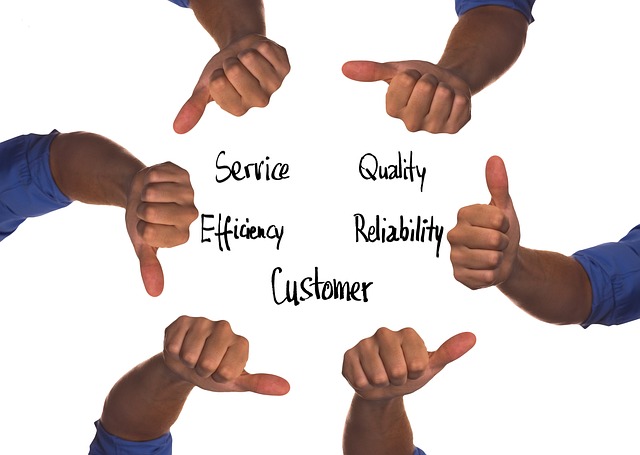|
Joe Calloway and I have been friends for about 40 years. He's a fellow Hall of Fame Speaker and bestselling author. I've had the pleasure and privilege to be on client programs with Joe—and would always enjoy our pre-convention conversations. We'd make sure our two messages complemented and built on one another—to help our clients maximize results.
While Joe has "hung-up" his microphone as a speaker, he's still an in-demand business-consultant for his practical, incisive and on-target counsel.
Now, you too, get to be the beneficiary of Joe’s insights.
Jeff Blackman: Joe, what's foremost on the minds of the business people and leaders you work with?
Joe Calloway: Jeff, the number one opportunity and challenge, is growth. The simplest way, might be to make more, do more, and sell more. Yet you can also consider adding new products or services. I worked with an upscale landscaping company that added Christmas-lighting as a service. It was a huge success. But I've even advised clients to reduce their offerings—for they were wasting time on low- or no-profit endeavors.
JB: Aside from your speaking and consulting business over the years, you've been involved in other businesses too—including being a restaurant owner and real estate investor. What lessons have you learned from those businesses, that are applicable to any business?
JC: Now, I'm involved with real estate developments, snow board and ski manufacturing, and wholesale bourbon. From these, I've learned more important than your "what" or your "why" is the "who."
When I participate in a company as an investor partner, I'm mainly betting on the people. Do I trust them? Do I like them? Are they great at what they do? 
As an advisor to start-ups, I've found their success is much less dependent on their product or service, and more on the quality of the company's leaders. Because business is about relationships, that's what I value most.
JB: What business challenges will confront us in the future? And most important, how do we prepare for them?
JC: I love to ask leaders, "What's going to happen next?" The more experienced and successful they are, the more likely they answer, "I don’t know." Yet, therein lies, the real answer. Our challenge is to confront and handle the increasingly rapid changes in society and technology, without losing our collective cool over it.
A great leader I was working with during an industry crisis, said to his team, "I don't know what we're going to do. But I know who we are, and you know who we are. So we'll figure it out. We'll be fine."
Again, it's the quality of the people, and they know their values and strengths. That prepares them to handle the next challenge.
JB: What's a mistake(s) you've made and what did you learn?
JC: Jeff, there were times early in my career when I spread myself too thin. I took on jobs and assignments that got me off-track. I had to learn the difference between a distraction and an opportunity.
One of my favorite quotes is from Warren Buffet, "The difference between successful people and really successful people is that really successful people say 'No' to almost everything." Be open to opportunity, but know, when to say, "No."
JB: What keeps employees happy?
JC: The greatest competitive advantage a business might have, is employees who love to go to work. Think about that. And then think about the opposite reality.
No company can be successful for very long with unhappy employees. Beyond competitive pay and good working conditions, my big three are:
1. Personal connection by and with leadership. Know your employees as people and let them know you. Learn what makes them tick and let them know what makes you tick.
2. A clear, strong culture everyone buys into and is real, not just a poster on the wall.
3. Clarity. Every employee knows exactly what the company vision is and how they fit in with making that vision real. A vital component of this is feedback. Honest, useful feedback, good and bad. People have to know how they're doing.
JB: With any successful business, what metrics are most important to measure?
JC: In my book, Be The Best At What Matters Most, I write about Memphis Invest, a remarkably successful real estate investment company. Every department has their own set of metrics that tells them and leadership exactly how they're doing, i.e., "Number of days property unrentable." That metric leads them to identify the cause of the problem, what the plan for a solution is, and when it will be done.
 If I had to pick just one all-important, master-metric, it would be customer satisfaction. To know what your future is, I won't look at sales. I'll look at customer satisfaction. If I had to pick just one all-important, master-metric, it would be customer satisfaction. To know what your future is, I won't look at sales. I'll look at customer satisfaction.
JB: What role is AI having or will it have, with the clients you're working with?
JC: I have clients using AI in customer service, data analysis, forecasting, social media, writing and composition of all kinds.
Some of my clients are taking a bit of a "you go first" approach. They're exploring, learning, assessing—while not making major commitments that might be significantly changed or abandoned.
The initial fear people felt about AI is tempering, since there's also growing excitement about possibilities and opportunities.
JB: What do customers or clients especially value from any business?
JC: Here's a practical example. Let's say you call me and say, "Joe, I'm entertaining a group of very important clients in Nashville next month. Give me an absolute rock-solid recommendation for a great restaurant."
To help you Jeff, what I'm looking for—is a restaurant absolutely consistent in its delivery of a quality experience. They get it right. Every time. Consistency of performance builds a brand. Inconsistency of performance kills a brand.
Plus, today's customer expects rapid response or delivery. Get back to me immediately or I'll go somewhere else. That's today's standard. Never make a customer wait.
• • • • •
So you don't have to wait for more of Joe's wisdom, please be sure to head to Amazon for his powerful, bestselling books on leadership, priorities, market distinction and a winning mindset.
• • • • •
Want to see how Jeff Blackman helped one client drive results? Please take a peek at this video, where Chris Randall, CEO of Ultra Risk Advisors, talks about Jeff's positive and powerful impact on his team:
To explore how Jeff can help you and your team drive results—with speaking, training, coaching, consulting and ongoing reinforcment—in-person or virtual, please contact Sheryl Kantor at: [email protected] or 847.998.0688
|